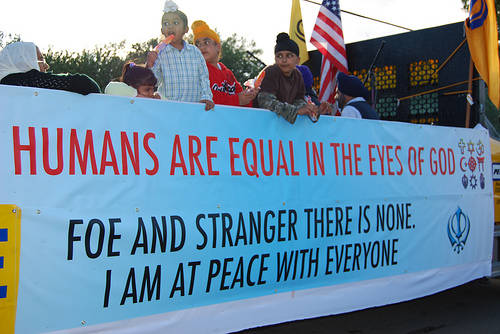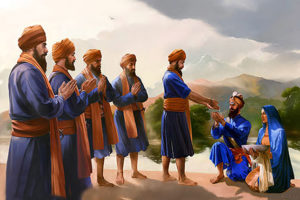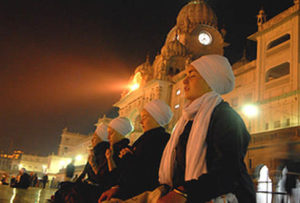Equality for all

Sikhism teaches equality of all people. Sikhism preaches that people of different races, religions, or sex are all equal in the eyes of God. Sikhism teaches the full equality of men and women.
Sikhism emphasizes daily devotion to the remembrance of God. One should remember God at all times.
Sikhism teaches religious freedom. All people have the right to follow their own path to God without condemnation or coercion from others.
Sikhism emphasizes a moral and ethical life. A Sikh should represent moral responsibility and righteousness.
Sikhism rejects all forms of rituals such as idol worship, pilgrimages, fasting, and superstitions.
Sikhism teaches service to others. The primary task in life should be to help the poor, needy, and oppressed. The Sikhs have a long heritage of speaking out against injustice and for standing up for the defenseless.
Sikhs are supposed to be saints, scholars, and soldiers.
The word Sikh means disciple or student. Sikhs are the disciples of God who follow the writings and teachings of the ten Sikh Gurus.
Three Principles of Sikhism

Guru Nanak Dev, the first Sikh Guru, taught three fundamental principles:
- Kirat Karo – Work hard and honestly
- Wand Ke Chhako – Share what you have with the needy
- Naam Jappo – Always remember God throughout the day
Mool Mantar

Mool Mantar is a basic prayer, composed by Guru Nanak Dev. It is the key prayer of Sikhs which sums up the basic concepts of the Sikh religion.
| There is one God. | Ik Onkar |
| His Name is Truth. | Satnam |
| He is the Creator. | Karta |
| He is present throughout His Creation. | Purakh |
| He fears none. | Nirbhao |
| He hates none. | Nirvair |
| His existence is immortal. | Akal Murat |
| He is not born, nor does He die. | Ajuni |
| He is self-illuminated. | Saibhang |
| He is realized through the grace of the Guru. | Gur prasad |



